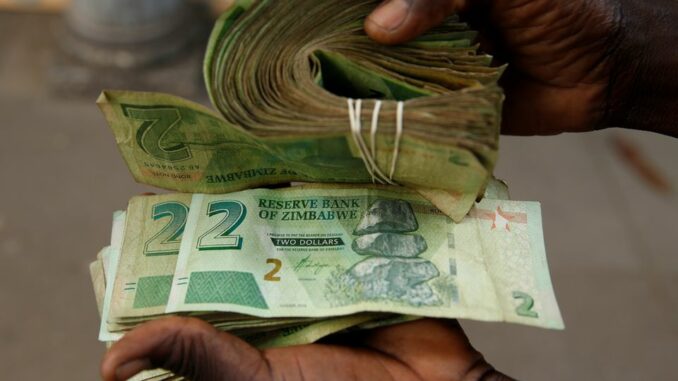
Zimbabwe’s government came under fire last Saturday for imposing a freeze on bank lending, a move that will encourage the development of a shadow banking system and jeopardize the country’s economic recovery.
President Emmerson Mnangagwa has ordered banks to suspend lending as part of a recovery plan for a country plagued by soaring inflation fueled by the war in Ukraine and soaring commodity prices.
In early April, the Central Bank of Zimbabwe raised its main policy rate from 60% to 80% to curb inflation.
This rate is currently the highest in the world and is an absolute record for this southern African country, according to the financial agency Bloomberg.
The freeze on bank loans, according to the executive, aims to put a stop to speculation against the Zimbabwean currency, which has been trading in recent days on the parallel market at nearly 400 Zimbabwe dollars to the U.S. dollar, more than double its official rate.
The Chamber of Commerce and Industry, in a statement, blasted the executive’s decision, which “legitimizes a parallel banking system at usurious rates. “No investor will be interested in an economy where bank credits can be frozen overnight,” it warned.
The country’s main banks began discussions with the central bank on Monday. Shepard Ngandu, a union leader in the banking sector, stressed during these discussions that “credit is the primary source of income for a bank. Zimbabwe’s economy has been in deep crisis for more than 20 years, with international donors withdrawing because of unsustainable debt.
The rise in prices of basic commodities has recently been aggravated by the conflict in Ukraine, while Russia is the country’s main supplier of wheat.
